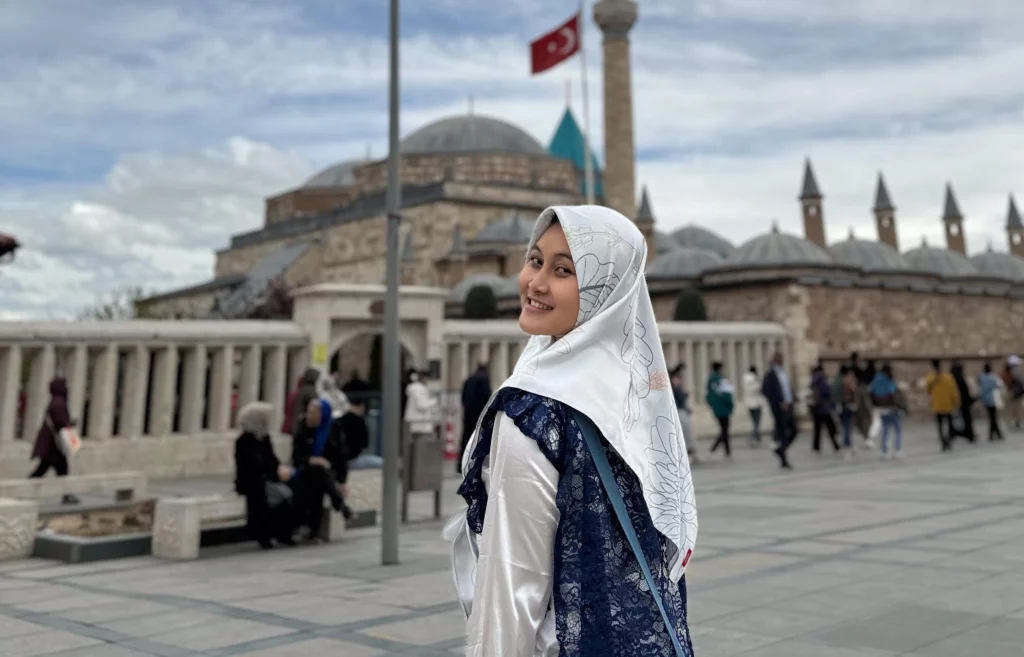UNAIR NEWS – Internships are a key component in preparing students for the professional world. Many students from Universitas Airlangga (UNAIR) pursue internships not only domestically but also at international institutions. One such student is Nismara Najmasani, an International Relations student at the Faculty of Social and Political Sciences (FISIP) UNAIR, who was selected for an internship at the Embassy of the Republic of Indonesia (KBRI) in Ankara, Turkey.
Najmasani learned about the program through social media. She submitted the required documents via email and the official hotline. “After completing the administrative process, I was scheduled for an interview and later received a Letter of Acceptance, which helped with my passport arrangements,” she explained.
Key embassy roles
During her internship, Najmasani worked in two main departments: department of economic affairs and the department of education, social, and cultural affairs (PENSOSBUD). In the economic division, she was responsible for preparing reports on Turkey’s economic conditions. These reports were reviewed by embassy diplomats before being forwarded to the Ministry of Foreign Affairs in Indonesia.
“I wrote economic briefings on developments in Turkey, which were then reviewed by sub-professors or diplomats before being sent to the Foreign Affairs Ministry,” she said.
Najmasani also contributed to cultural and youth engagement events under PENSOSBUD. She was involved in organizing several art and youth-related activities, including an art exhibition featuring works from the Indonesian Institute of the Arts (ISI). “We also hosted a photography exhibition. This division focuses heavily on fostering collaborative partnerships between the embassy and other institutions,” she added.
Lessons and challenges
The experience offered Najmasani valuable insights into the inner workings of embassy life, which she found to be more interdisciplinary than expected. She noted that embassy operations involve roles beyond International Relations, including positions in defense and other specialized fields.
Despite the enriching experience, Najmasani faced significant challenges—among them was language barriers. “I didn’t have a chance to study Turkish beforehand, and I also got sick during the winter because I wasn’t used to the cold,” she admitted.
Nonetheless, she found the experience deeply rewarding. “What I enjoyed most was learning how workplace relationships function within a cultural context. Turkey’s rich Islamic heritage and historical landmarks made the experience even more meaningful,” she shared.
To fellow students interested in interning abroad, Najmasani offered a word of encouragement. “International internships require strong mental resilience and a proactive attitude. It’s all about adapting to new environments. Don’t be afraid—there’s so much more to the world than what we see every day. Studying abroad opens up entirely new perspectives,” she concluded.
Author: Adinda Octavia Setiowati
Editor : Ragil Kukuh Imanto









